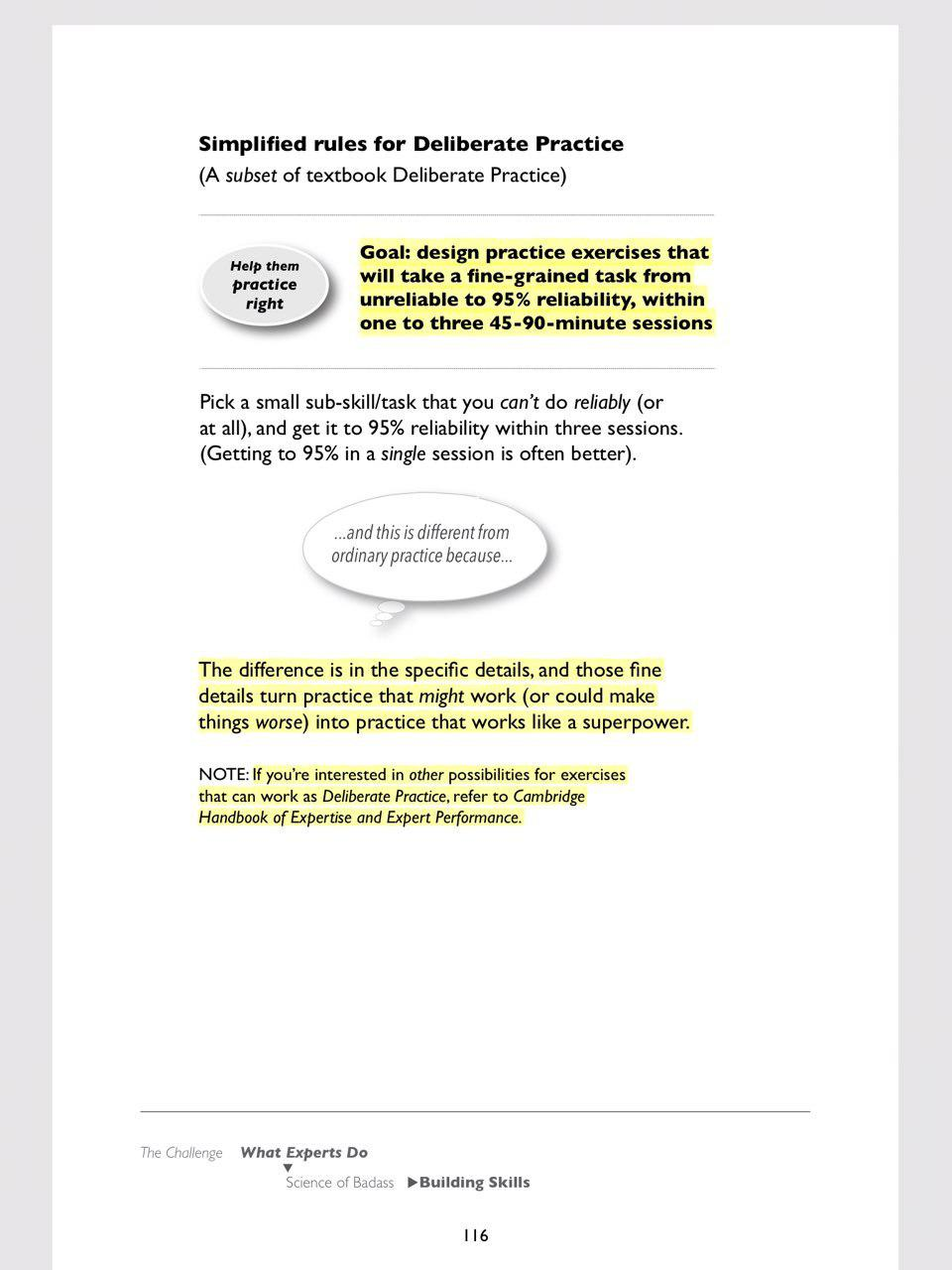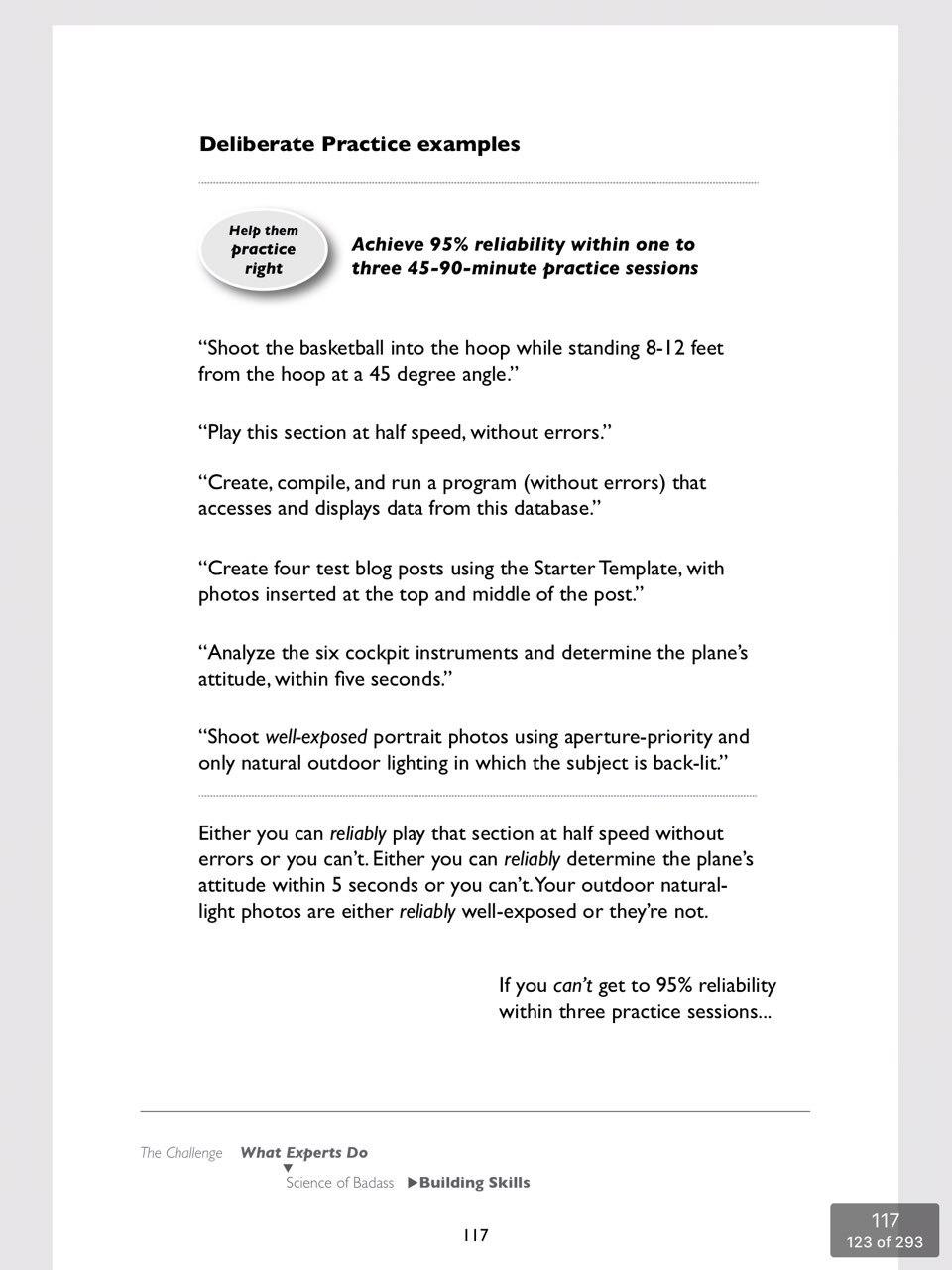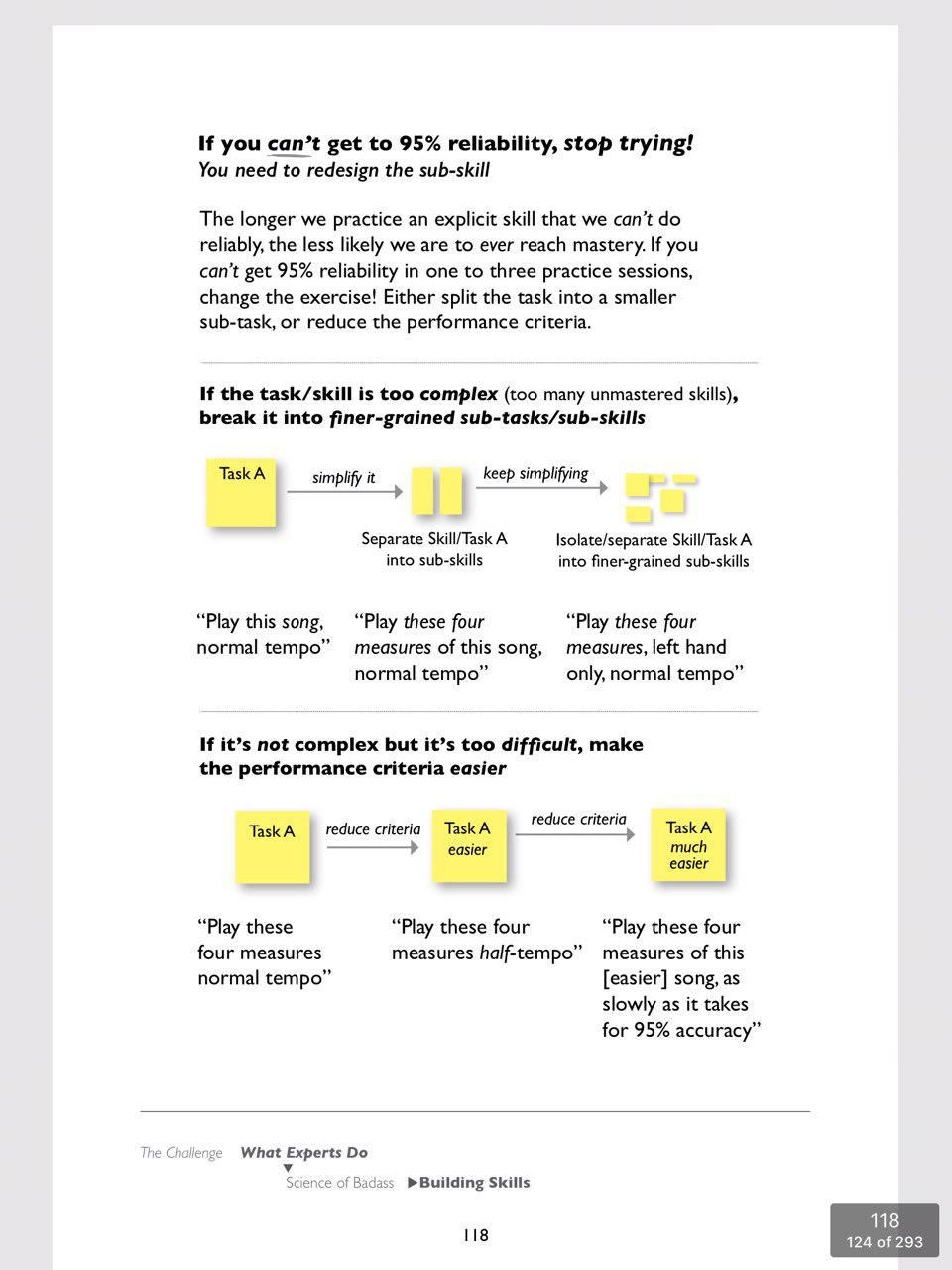- specific goals: set some sort of intentions
- takes maybe just some breath/seconds
- intense focus
- immediate feedback
- how to get feeback on the thing you are trying to do
- filming (front, side)
- quality (relaxed, etc.)
- self assess, attention, breathing, relaxation
- comfort zone
- step outside, but not too far outside
- expert coaching
- purposeful vs deliberate practice
- same as deliberate performance?
- How much is it actually good to have delibarate things going on outside of your normal day moments? Ideally they would be the same? And if yes ok but is this realistic? Its more of a phase/season thing. For some things you are doing more deliberate and other things are to integrated you do them out of habit or as being part of your whole self.
- from https://jamesclear.com/deliberate-practice-theory
Deliberate practice refers to a special type of practice that is purposeful and systematic. While regular practice might include mindless repetitions, deliberate practice requires focused attention and is conducted with the specific goal of improving performance.
- from https://www.facebook.com/lynette.bye/posts/4177622615625088
I get frustrated at the pushback against deliberate practice that boil down to “Ericsson believes that practice trumps genetics, so deliberate practice must be wrong.” I had dinner a few years ago with Anders Ericsson and a few other psychologists, and we spoke about the question. I came away with the impression that they all agreed that genetics and innate talent put ceilings on how far someone could improve a skill, but that we were all so far from our innate ceilings that they really didn’t matter. Is this a motte and bailey argument? Maybe. It’s possible that Ericsson’s stronger claims represent his actual beliefs, and he’s just retreating to the more defensible position when the superiority of practice is attacked. But I think it’s a good bailey. I could probably count on my fingers the people I know who have really tried to push their abilities to the brink with deliberate practice. So regardless of whether Ericsson actually believed the stronger claim or not, I don’t see this argument as a point against deliberate practice.
- deliberate practice is an addition to purposeful-practice
- First, it demands that the practice be conducted in a field with well-established training techniques. Fields like music, math and chess have rigorous training methods that have been developed over the course of decades. This makes such fields ideal candidates for deliberate practice.
- Second, it demands that practice be guided in the initial stages by a teacher or coach. This is somewhat linked to the first principle — that the practice occurs in a domain with established training methods mean that a teacher may use known pedagogical techniques to improve student performance. As the student improves, her ability to form accurate mental models will also improve; these models allow her to eventually practice on her own.
- Third, and last, deliberate practice nearly always involves building or modifying previously acquired skills by focusing on particular aspects of those skills and working to improve them specifically. This in turns implies finding teachers or coaches with ever higher levels of expertise, and learning better refinements from them.
In other words, by Ericsson’s definition — or at least, according to the one that I’ve taken from Peak — if you are in a domain with little known training methods, you cannot do deliberate practice in its pure form. You cannot do so because you would need to discover effective mental models yourself. You would also have to develop training methods of your own, as no standardised methods exist. These restrictions puts you firmly in the domain of purposeful-practice alone.
Is all hope lost? Not exactly. Many of us work in domains with ‘fractionated’ pools of expertise. For instance, I am a computer programmer by training. My domain consists of many higher order skills like distributed systems design, or ‘the skill of implementing 20% of what the client asked but delivering 80% of the value, while pretending to be doing 100% of what the client asked for and delivering 100% of the value’ — for which no standardised training methods exist. But it also contains topics like ‘testing’, or ‘object oriented programming’ or ‘database modelling’ for which established training methods do exist. We may apply purposeful practice to the former, and seek out opportunities for deliberate practice for the latter.
Simplified form



tool
Lookup
- expertise
- the-practice-problem
- purposeful-practice
- https://improvingteaching.co.uk/2018/10/28/critiquing-deliberate-practice-is-it-useful-in-teacher-education/
- https://commoncog.com/blog/the-problems-with-deliberate-practice/
- you can miss the point.
- if you think this means you just need to put 10000 hours into something.
- you can miss the point.
- https://fs.blog/deliberate-practice-guide/
- This series explores how expertise is tacit, why the research around extracting tacit knowledge is more important than the literature on deliberate practice, and how to go about acquiring tacit knowledge in the pursuit of skill acquisition.